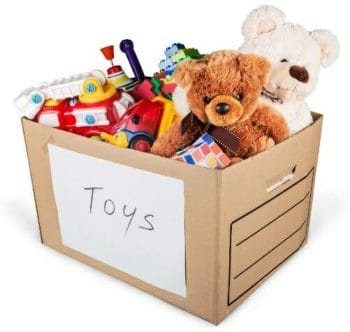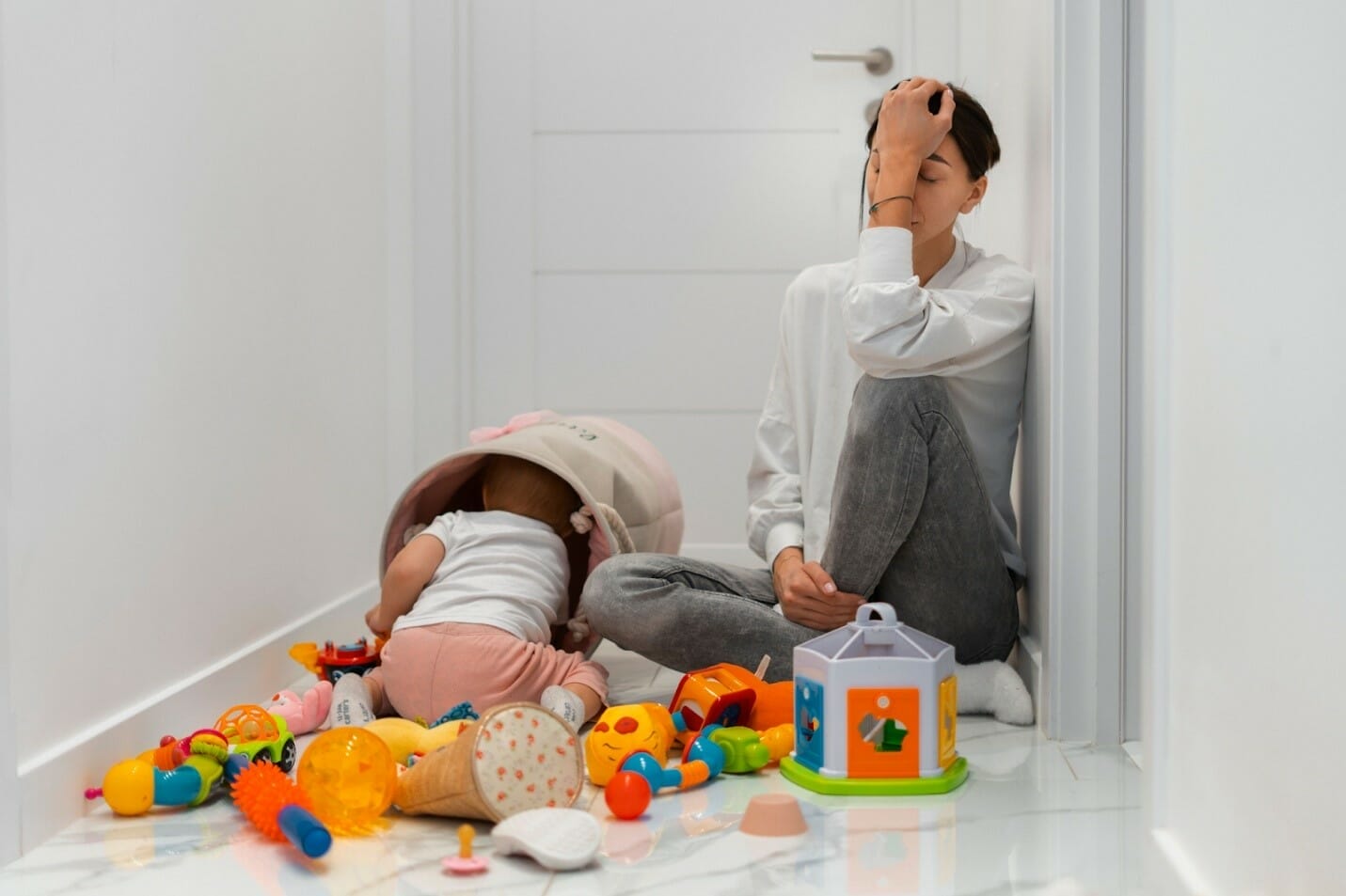The word? Kids. Organization is all well and good, but what if you have kids in the mix?

Kids usually make life messier, and they can also make it difficult to stay on task when cleaning or organizing. When you’re being interrupted to attend to someone else’s needs, you have to re-motivate yourself to go back to cleaning every time. It can be a struggle!
However, even though it can be hard to keep up with cleaning when kids are living in the house, you can still successfully have a clean, organized home… at least some of the time!
Spoiler alert: Why not involve them?
Your kids can and should help! You’ll be teaching them good habits for the future.
Here are 5 tips for getting kids involved with your decluttering projects:

Depending on what needs to be done, you can either enlist your kids’ help or find ways to distract them.
If they’re elementary-aged, give them something simple and bite-sized to do, like sorting items into a bin or small cleaning tasks with nontoxic chemicals. Younger kids can make it more of a game—you can give them a cloth and water to “pretend clean,” ask them to sort colors of items on the floor, or something similar.
If they’re teens, they can be counted on to take on some real tasks.

Your kids probably won’t clean things to your standards. However, that doesn’t mean they
aren’t helping, or that you have to redo their work—at least not every time!
When you do this, your kids are taking on responsibilities, learning new tasks, and trying to help you. Their version of done will be better than nothing being done at all.
When you delegate tasks to avoid getting overwhelmed, you’re lightening your load and getting something done that might have been otherwise ignored.
You don’t want to micromanage your kids, but you can gently give them good advice to help them clean effectively. Creating checklists or sticker charts can also help—these tools are motivating and can help kids take ownership of their responsibilities.
When we turn chores into games, our brains receive a burst of motivation that inspires us to do the activity again. (This strategy works for adults as well as kids!)

Try making it a race or setting a timer. You can turn anything into a competition or challenge and it becomes instantly more exciting.
Connect a cleaning habit with another one. For example, every time your kid brushes their teeth, they wipe off the counter or put away 5 bath toys.

Do you have items in your closet that still have the price tags attached? When you bring something new in, you need to take something old out. Whether it be your closet, car, or garage, the same rule applies.

Label storage areas clearly so kids know where to put their toys. The more you help them succeed with simple tasks like this, the less work you’ll have to do and the more accomplished they’ll feel.
When birthdays or holidays are coming up, encourage your kids to choose some items to give away before the big day to make space for new ones. (Or do this yourself if your kids are too young to understand.)
Give kids an incentive to complete their tasks. For example, if they declutter 25 items from their rooms, they can go on an outing with you, receive a certain amount of screen time, have a friend over, etc.

When kids see that you value decluttering, they will also learn to value it.
Don’t forget to make use of the resources available to you to give yourself a break. That’s why just about every parent is in Level 1 or Level 2 of the hoarding scale we reviewed earlier—at the very least.
Try hiring a babysitter or mother’s helper for a few hours.
If it’s financially possible, hiring a housekeeper or maid can remove some of the burden of cleaning off your shoulders.

It’s probably not a season where you’ll have a pristine home all the time, but spending even a little time decluttering can help you feel more sane.